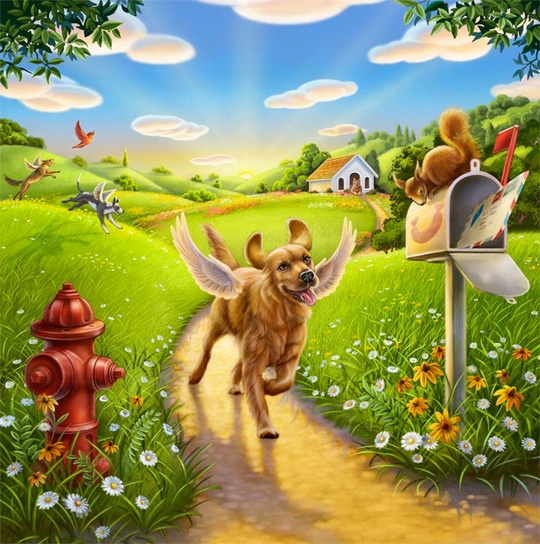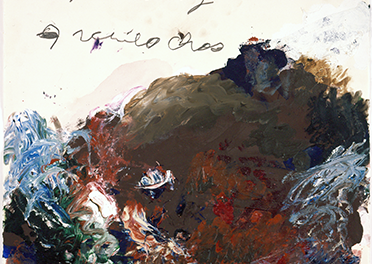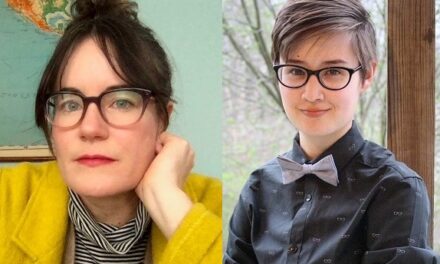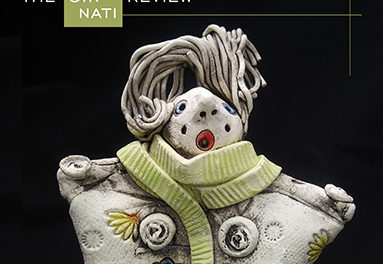 Welcome to our third installment of Pas de Deux in which Rosa Alcalá interviews fellow poet and 10.2 contributor David Kirby about his poem “Is Spot in Heaven?” Scroll down to discover the secrets behind Kirby’s characteristically staggered (and staggering) stanza patterns, to read Kirby’s thoughts on the popular-versus-high-culture debate, and to finally learn whether heaven—or at least doggie heaven—exists.
Welcome to our third installment of Pas de Deux in which Rosa Alcalá interviews fellow poet and 10.2 contributor David Kirby about his poem “Is Spot in Heaven?” Scroll down to discover the secrets behind Kirby’s characteristically staggered (and staggering) stanza patterns, to read Kirby’s thoughts on the popular-versus-high-culture debate, and to finally learn whether heaven—or at least doggie heaven—exists.
Rosa Alcalá: Your poem has an interesting form. For the most part, the tercets are enjambed, which allows for continuity in the narrative, but also shifts. Can you talk about your intentions regarding the relationship between form and content?
David Kirby: Oh, gosh, Rosa. When I’m asked about my signature stanzas, as I often am, I think, “How do I explain thee? Let me count the ways.” Probably the baseline explanation is this: I like long, loopy sentences, which means lots of “ands,” and since lines tend to break after nouns and verbs, that means a whole series of lines are going to have “and” as their first word. And, and, and: that’s pretty unsightly, yes? So by staggering my lines this way, I avoid those word stacks. There’s an essay on my work where the writer says I’ll take six or eight bits—a childhood memory, something I read, a piece of overheard conversation, and so on—and create a kind of emotional pendulum so they all swing back and forth together, and the look of a typical poem heightens that effect. But the truest answer to your question is what we say when someone asks us why we do anything, which is that other people seem to like it.
RA: Humans don’t come off as particularly sensitive or kind here: they keep elephants in cages, train bears for their own amusement, and mock a child’s innocence. Yet, the speaker, whom I gather is human, knows he will meet the same end as Spot, and takes comfort in that. Can you tell us how these observations emerged? What issues do you see this poem addressing, and did you know the poem was heading in that direction?
DK: I never know where a poem is heading. As I say above, I gathered a lot of disparate materials that share an emotional core and began to play with them. I certainly don’t mean to say that humans are bad (you are correct in pointing out that I, too, am a member of that species), but I did want to isolate some moments where humans were thoughtless. That’s the way we are, and there’s no cure for it, except in poetry. As with a lot of what I write, here I use my poem to think and feel my way toward a world I’d like to live in, in this case, an Eden of sorts.
RA: I thought the mention of Leonard Woolf was clever (Virginia’s husband, yes?). The only enlightened human here shares his name with an animal. But in citing Woolf you also engage us in different realms of knowledge and world views, from Catholicism to Sam Cooke. Can you talk about your use of high and low culture (or larger philosophical issues and the quotidian)?
DK: Ha, ha! That’s another one you interviewers are always throwing at me. I guess I don’t see the difference. I wrote a poem once about looking at Michelangelo’s statue of Moses in Rome and hearing Aretha Franklin singing “Chain of Fools.” Why not? Both works are pretty colossal, pretty passionate. Another writer once said I was a Kitchen Sink Poet. Hey—guilty, your honor!
RA: I read this poem as saying: we subjugate or suppress because we fear the unknown; we control what we can. The speaker is starting to see the other side of the river, and he’s welcoming it. He wants all things, then, to be free, to have his freedom to love and be loved. What’s your perspective regarding your poem?
DK: That’s it, Rosa. You get the poem; in fact, you get it better than I do, because, as I say, mainly I’m playing here. But, yes, I want more, and I want the world to be better to all its inhabitants. I’m glad you point out that the new and better world hasn’t arrived yet. A lot of my writing (thinking, teaching, talking) deals with these almost-moments. If you lead your reader and yourself up to the edge and let them look over, that’s more moving in a lasting way than it would be if you concluded tidily and put up a little placard that said “The End.” As the filmmakers say about a scene, you should arrive late and leave early.










